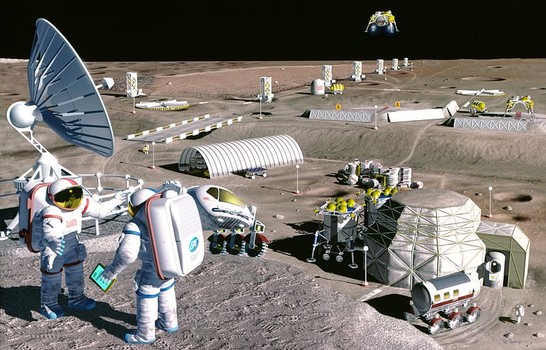The Alliance for Space Development, consisting of a number of space advocacy groups such as the National Space Society, the Space Frontier Foundation, and the Mars Society, was formed as a result of a closed-door meeting recently. The news was received with puzzlement in some quarters and outright scorn in others. However, Space News reported Thursday that the ASD has hit the ground running and is pushing for a number of legislative items and other initiatives designed to further the cause of space development and settlement.
The most ambitious initiative is a proposal called the Cheap Access to Space Act that would create $3.5 billion in prizes to further the development of reusable launch vehicles. A $1 billion prize that would be awarded to the first private group to create a reusable vehicle capable of placing a metric ton into low Earth orbit is at the core of the proposal. The vehicle would have to fly once and then turn around and fly again in just a week. The prize is similar to the Ansari X Prize that resulted in back to back suborbital flights by SpaceShipOne that in turn led to the nascent suborbital space tourist industry.
Besides greatly reducing the cost of space travel, in general, such a space vehicle would help enable a dream of many space advocates to create a space transportation infrastructure based on space-based fuel depots. A fierce argument has raged in the space community concerning NASA plans to rely on the heavy-lift Space Launch System for its space exploration plans. A faction maintains that the SLS is too expensive to fly and will hold back the cause of space exploration. They prefer that smaller, commercially available launch vehicles be used to supply fuel depots. Spacecraft would dock at a fuel depot, top off, and then head to deep space destinations, such as the moon or Mars.
But some advocates of this approach admit that current launch vehicles such as the Falcon Heavy and the Delta IV Heavy lack the flight rate to make the fuel depot idea viable. The creation of a reusable launch vehicle that could deliver a metric ton of fuel to a depot each week would go a long way to making the architecture viable. It might turn out to be an extender for spacecraft launched by heavy lift rockets such as the SLS.
Other initiatives being pushed by the ASD include a declaration that space development and settlement will be a “national purpose,” full funding for the commercial crew program, the creation of more commercial modules for the International Space Station, and an extension of the so-called “learning period” that restricts the FAA’s ability to regulate private, crewed spacecraft. Rep. Dana Rohrabacher, R-Calif. will introduce a bill that will amend the National Air and Space Act for the space development and settlement initiative.















